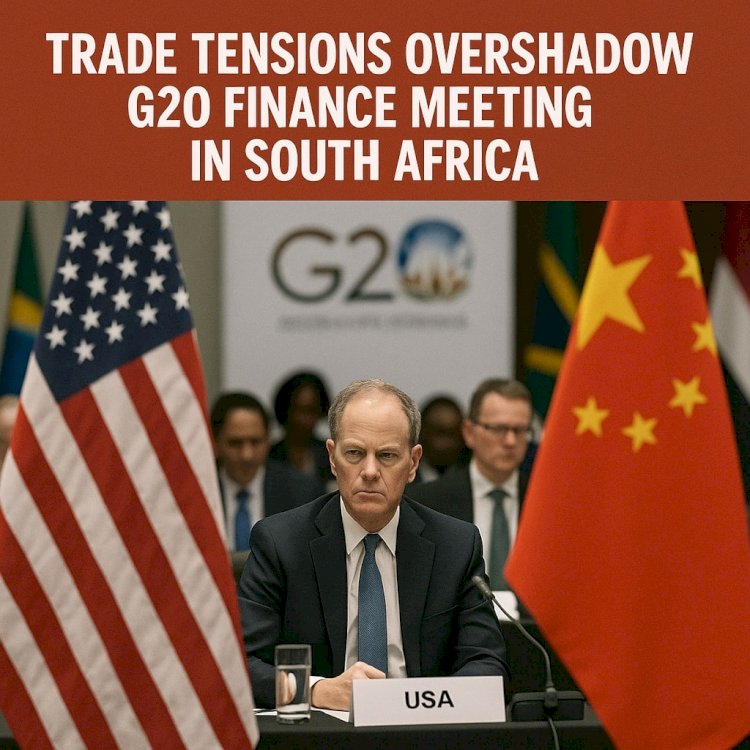Trade Tensions Overshadow G20 Finance Meeting in South Africa

Durban, July 17, 2025 — Finance ministers from the world’s largest economies gathered in Durban today for the G20 summit, but rising trade tensions and diplomatic absences cast a shadow over the proceedings.
South Africa’s Moment in the Spotlight
As the first African nation to host the G20, South Africa has placed the spotlight on themes of solidarity, equality, and sustainability, aiming to amplify the concerns of developing countries. However, the notable absence of the U.S. Treasury Secretary Scott Bessent—the second missed G20 event for the official this year—has raised questions about Washington’s engagement in the talks.
Tariff Threats Stir Unease
The summit’s agenda was dominated by debate over proposed tariffs from the United States targeting key emerging economies, particularly BRICS members. These potential trade barriers risk escalating retaliations and further destabilizing the already fragile global trading system.
Africa’s Priorities Push Forward
Despite geopolitical tensions, South Africa’s central bank governor Lesetja Kganyago emphasized the country’s commitment to advancing Africa’s agenda within the G20 framework. Among top priorities are climate financing, lowering borrowing costs, and creating streamlined cross-border payment systems to stimulate intra-African commerce.
Germany Steps Up Support
Highlighting the importance of international cooperation, Germany pledged €10 million to the World Bank’s trust fund to support development projects, underlining the need to address financial challenges facing African economies.
Market Reaction Reflects Caution
Financial markets responded with caution; the South African rand weakened by about 0.4% against the dollar, indicating investor anxiety amid ongoing uncertainties around global trade policies.
Looking Ahead: Seeking Common Ground
As the meeting wraps up, South Africa prepares to release its inaugural G20 communique. While hopes remain for coordinated global action on economic growth and climate initiatives, deep divisions among member nations suggest consensus will be difficult to achieve.

 content-team
content-team 


















